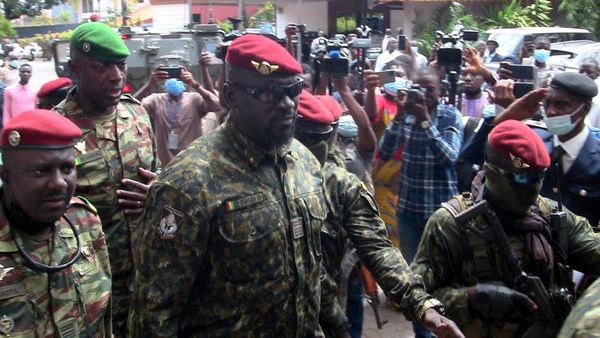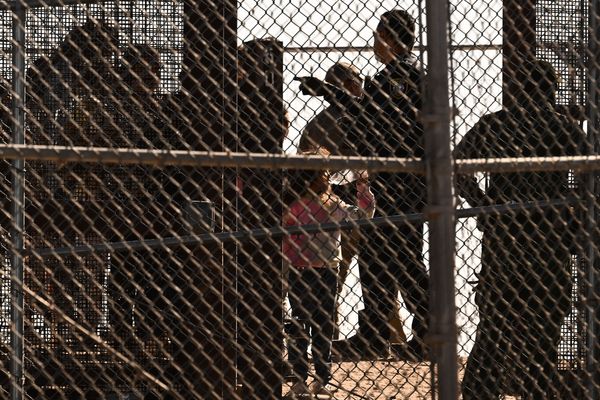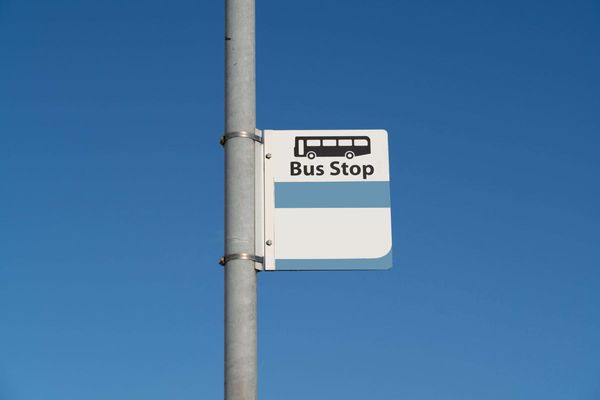
Damascus (AFP) - Iran's President Ebrahim Raisi arrived in Damascus on Wednesday, state media said, on the first visit by a head of state from the Islamic republic since Syria's civil war broke out 12 years ago.
Raisi was due to meet his ally, President Bashar al-Assad, at a time more regional governments are re-engaging with the Syrian regime as it seeks to rebuild after the years of civil war.
During the conflict, Tehran has provided economic, political and military support to Syria, helping Damascus claw back lost territory and positioning Iran in a leading role as Assad seeks to focus on reconstruction.
The two-day visit comes just weeks after Iran's landmark, Chinese-brokered agreement to restore ties with regional rival Saudi Arabia, which has sparked a flurry of diplomacy in the Middle East.
Raisi, joined by a large ministerial delegation, and Assad will hold "extensive political and economic discussions ...followed by the signing of a number of agreements," Syria's state news agency SANA said.
The Iranian delegation includes the ministers of foreign affairs, defence, oil, roads and city construction as well as telecommunications.
Preparations for Raisi's visit have been underway for days in the Damascus district housing Iran's embassy, with concrete barriers in front of the mission removed, an AFP correspondent said.
Both Tehran and Damascus remain under heavy Western sanctions.
Heavy security
Security forces were heavily deployed in key parts of the Syrian capital.
Syrian and Iran flags lined the road from Damascus international airport to the Sayyida Zeinab mausoleum, south of Damascus -- a revered pilgrimage site for Shiite Muslims that Raisi is supposed to visit.
Billboards with portraits of the two presidents that said "welcome" in Arabic and Farsi had been erected along the airport road.
Iranian government spokesperson Ali Bahadori Jahromi said Tuesday that "both countries are ready for the highest level of cooperation, and the purpose of this trip is economic," adding that they could also "cooperate" during the reconstruction phase.
The last Iranian president to visit Damascus was Mahmoud Ahmadinejad in September 2010.
Assad has officially visited Tehran twice since the war broke out, the last time in May 2022.
Damascus-based analyst Osama Danura said the visit "will open a new page in the close relationship between the two countries".
It "could focus on long-term economic strategies", he added, noting Iran "has put itself forward strongly as a contributor to the reconstruction phase".
Deals expected
Syria's war has claimed more than 500,000 lives, displaced millions and ravaged the country's infrastructure and industry.
Swathes of territory remain outside government control.
"A large number of agreements and memoranda of understanding" will be signed during Raisi's visit, including on "energy and electricity", Syria's pro-government Al-Watan newspaper reported.
There would also be "discussions on a new Iranian credit line for Syria for investment in the power sector," the daily added, in a country where blackouts can last around 20 hours a day.
In January 2019, Syria and Iran signed 11 agreements and memoranda of understanding, including a "long-term strategic economic cooperation" deal.
The regional atmosphere following the Saudi-Iran rapprochement has made Raisi's visit "more appropriate", analyst Danura said.
Assad is hoping full normalisation of ties with wealthy Gulf monarchies and other Arab states will also help finance reconstruction.
In April, Saudi Foreign Minister Prince Faisal bin Farhan made the first visit to Damascus by a Saudi official since the start of the war.
On the ground, Iran-backed groups including Lebanon's Hezbollah continue to bolster Assad's forces, while Iran says it only deploys military advisers in Syria.
"Fighting terrorism is one of the successful examples of cooperation between the two countries," Iran's foreign ministry spokesman Nasser Kanani said this week.
"We were with the Syrian nation during the difficult years caused by the organised attacks of multinational terrorists...and we will be with the Syrian nation during the construction period," he added.
Damascus considers all those who oppose it as "terrorists".
Analyst Danura said he also expected Syria-Turkey relations to be discussed.
Tehran has been part of four-way talks with Damascus, Moscow and Ankara seeking to repair Syria-Turkey ties, which were severed at the start of the conflict.







